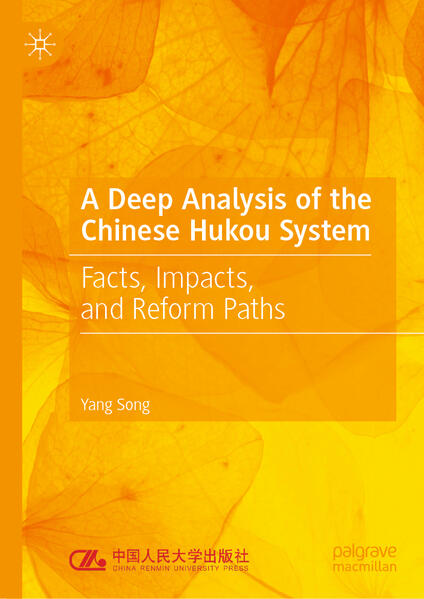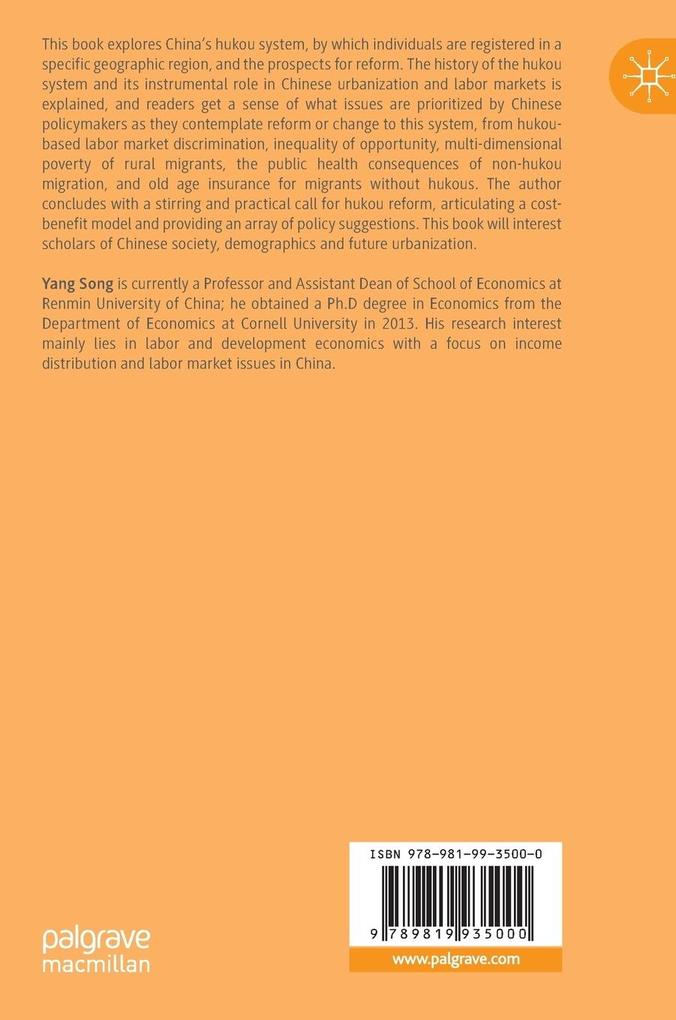
Zustellung: Do, 26.06. - Mo, 30.06.
Versand in 1-2 Wochen
VersandkostenfreiBestellen & in Filiale abholen:
This book explores China's hukou system, by which individuals are registered in a specific geographic region, and the prospects for reform. The history of the hukou system and its instrumental role in Chinese urbanization and labor markets is explained, and readers get a sense of what issues are prioritized by Chinese policymakers as they contemplate reform or change to this system, from hukou-based labor market discrimination, inequality of opportunity, multi-dimensional poverty of rural migrants, the public health consequences of non-hukou migration, and old age insurance for migrants without hukous. The author concludes with a stirring and practical call for hukou reform, articulating a cost-benefit model and providing an array of policy suggestions. This book will interest scholars of Chinese society, demographics and future urbanization.
Inhaltsverzeichnis
Part I Brief Introduction to China s Hukou System. - Chapter 1: Introduction. - Chapter 2: Current Situation of China s Hukou System. - Part II Comprehensive Impact of the Hukou System. - Chapter 3: Labour Market Discriminations Induced by the Hukou System. - Chapter 4: Unequal Opportunities Induced by the Hukou System. - Chapter 5: The Hukou System and Migrant Workers Multidimensional Poverty. - Chapter 6: Health Impact of the Hukou System on Migrant Workers. - Chapter 7: Impact of the Hukou System on Old-age Care for Migrant Workers. - Part III Hukou System Reform Path Analysis. - Chapter 8: Significance, Current Situation and Difficulties of Hukou System Reform. - Chapter 9: Is Hukou System Reform Cost-effective -- A Simulation Analysis Based on the Labour Market Model. - Chapter 10: Policy Analysis of Hukou System Linkage Reform. - Chapter 11: Policy Recommendations for Hukou System Reform.
Produktdetails
Erscheinungsdatum
27. Juni 2023
Sprache
englisch
Auflage
2023
Seitenanzahl
312
Autor/Autorin
Yang Song
Verlag/Hersteller
Produktart
gebunden
Abbildungen
XXII, 290 p. 6 illus., 1 illus. in color.
Gewicht
518 g
Größe (L/B/H)
216/153/22 mm
ISBN
9789819935000
Entdecken Sie mehr
Bewertungen
0 Bewertungen
Es wurden noch keine Bewertungen abgegeben. Schreiben Sie die erste Bewertung zu "A Deep Analysis of the Chinese Hukou System" und helfen Sie damit anderen bei der Kaufentscheidung.










